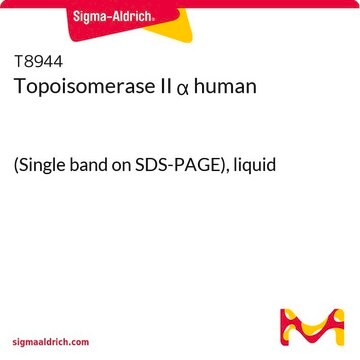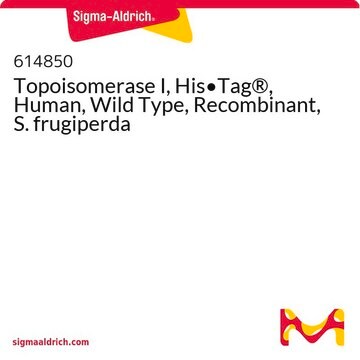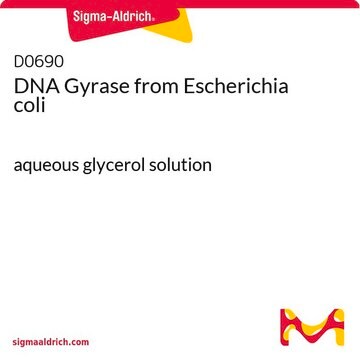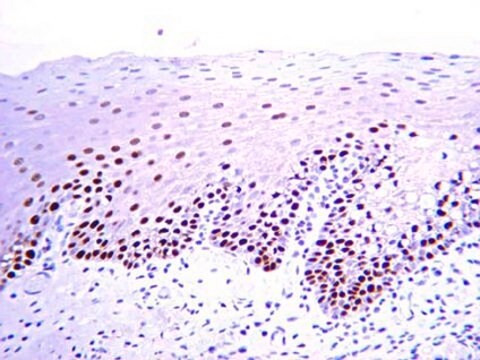T9069
Topoisomerase I human
buffered aqueous glycerol solution, ≥2 units/μL
Synonym(s):
DNA Topoisomerase I
About This Item
Recommended Products
recombinant
expressed in baculovirus
Quality Level
form
buffered aqueous glycerol solution
mol wt
100 kDa
concentration
≥2 units/μL
UniProt accession no.
storage temp.
−70°C
Gene Information
human ... TOP1(7150)
General description
Application
Biochem/physiol Actions
Unit Definition
Physical form
Signal Word
Danger
Hazard Statements
Precautionary Statements
Hazard Classifications
Repr. 1B
Storage Class Code
6.1C - Combustible acute toxic Cat.3 / toxic compounds or compounds which causing chronic effects
WGK
WGK 1
Flash Point(F)
Not applicable
Flash Point(C)
Not applicable
Regulatory Listings
Regulatory Listings are mainly provided for chemical products. Only limited information can be provided here for non-chemical products. No entry means none of the components are listed. It is the user’s obligation to ensure the safe and legal use of the product.
ISHL Notified Names
Substances Subject to be Notified Names
Cartagena Act
Cartagena Act Listed
JAN Code
T9069-BULK:
T9069-VAR:
T9069-250UN:
T9069-250UN-PW:
T9069-500UN:
Certificates of Analysis (COA)
Search for Certificates of Analysis (COA) by entering the products Lot/Batch Number. Lot and Batch Numbers can be found on a product’s label following the words ‘Lot’ or ‘Batch’.
Already Own This Product?
Find documentation for the products that you have recently purchased in the Document Library.
Our team of scientists has experience in all areas of research including Life Science, Material Science, Chemical Synthesis, Chromatography, Analytical and many others.
Contact Technical Service








